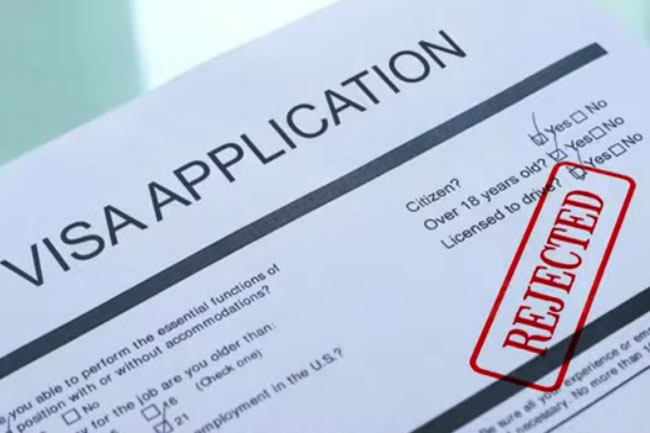The current high approval rate for offshore VET sector student applications from Nepal could raise more risk of colleges focused on selling "work visas" rather than education, writes Dr Abul Rizvi.
MOST AUSTRALIANS would be surprised that over the last two months, Nepal was Australia’s leading source of overseas students, overtaking both China and India.
In March 2022, there were 4,788 offshore student visa applications from Nepalese nationals compared to 3,930 from China and 3,483 from India. In April 2022, there were 4,543 offshore student applications from Nepalese nationals compared to 3,296 from China and 2,854 from India.
Given the very much larger middle-class populations of both China and India, how could Nepal overtake Australia’s two traditionally main sources of overseas students?
The data below gives us two (limited) explanations.
Firstly, there has been an astonishing increase in vocational education and training (VET) sector offshore student primary applications from Nepal.

Chart 1 shows that since Australia’s borders re-opened, there have been more VET sector offshore student applications from Nepalese nationals than from India, China, Pakistan and Sri Lanka put together.
This is surprising as the VET sector has traditionally recruited its students from those who are already in Australia, often poached from a higher education course. Offshore VET sector student applicants have traditionally been subject to a high degree of scrutiny and hence a high refusal rate.
Offshore student applications from China and India continue to be dominated by the higher education sector. VET sector applications from Pakistan also increased faster than higher education applicants in April 2022.
The second explanation for the comparatively rapid increase in offshore student applications from Nepal is a very significant increase in approval rates compared both to the Nepalese approval rate prior to the pandemic and in comparison with other South Asian nations.
Chart 2 shows that the approval rate for Nepalese offshore primary VET sector student applicants has, since November 2021, averaged well over 80% compared to India where the approval rate has fallen from 48% in January 2022 to just 13% in April 2022. The offshore VET sector approval rate for Pakistan has also started to rise.

Given Australia’s long history of problems with many private VET sector colleges focused on selling visas rather than education, this should be setting off alarm bells in the Department of Home Affairs, in the Australian Skills Quality Authority – which is responsible for the registration and regulation of VET sector providers – and in the Department of Education, Skills and Employment which is responsible for policy on the international education industry.
What may be driving this and why is it a public policy problem?
The key factor driving this change is likely to be the decision of former Immigration Minister Alex Hawke to allow overseas students to work for as many hours as they wish in any related or unrelated industry.
This has trashed the reputation of Australia’s international education industry because we are now seen as desperate to attract students more interested in work rights than the quality of education.
Australia’s student visa is now essentially an unsponsored work visa rather than one focused on study.
Any student who is more interested in work rather than study would choose Australia. These students would target the cheapest possible courses with the least pressure to study and the greatest opportunity to work multiple jobs.
In the short term and whilst the labour market is strong, this may not be a significant issue. But in the longer term and once the labour market returns to more normal levels, the problems will begin to mount.
Firstly, we will lose higher-performing students to other nations because of the trashed reputation of our international education industry — note, the international education industry does not appear to have asked Hawke for the change to work rights that he made and generally does not support unlimited work hours for students.
Secondly, as the labour market weakens, students will find it harder to get a well-paying job and will need to accept more exploitative wages and conditions to survive.
Thirdly, students will take longer to complete courses or will only complete low-quality courses that Australian employers do not value. That will make it harder for students to find a pathway to permanent residence and put them into what I call "immigration limbo".
Finally, converting the student visa into a work visa will attract more unscrupulous labour-hire companies and labour traffickers. That will lead to more fraud in the caseload as well as the risk of bribery and corruption.
The very high approval rate for offshore VET sector student applications from Nepal does not confirm this is happening but is indicative of the risk.
Redesign of student visas and pathways to permanent residence is another high priority issue for the incoming immigration minister.
This should include students doing VET courses linked to traditional trades and reform of the Job Ready Program to facilitate a pathway to permanent residence while minimising risks of abuse.
A first step would be to take Australia’s student visa back to where the focus is on study rather than work.
But that will cost money to enforce at a time the Department of Home Affairs/Australian Border Force budget is in free fall and will be difficult to enact as many business lobby groups will fight the reversion tooth and nail because of current labour shortages. They will see this as losing a hard-fought benefit to them.
Dr Abul Rizvi is an Independent Australia columnist and a former Deputy Secretary of the Department of Immigration. You can follow Abul on Twitter @RizviAbul.
Related Articles
- Home Affairs losing control of visa system
- Home Affairs delays visa processing while applications drop
- Home Affairs: Making money while migrants miss out
- Biloela family at mercy of Government's border protection stubbornness
- Home Affairs and the great partner visa cover-up
 This work is licensed under a Creative Commons Attribution-NonCommercial-NoDerivs 3.0 Australia License
This work is licensed under a Creative Commons Attribution-NonCommercial-NoDerivs 3.0 Australia License
Support independent journalism Subscribe to IA.














